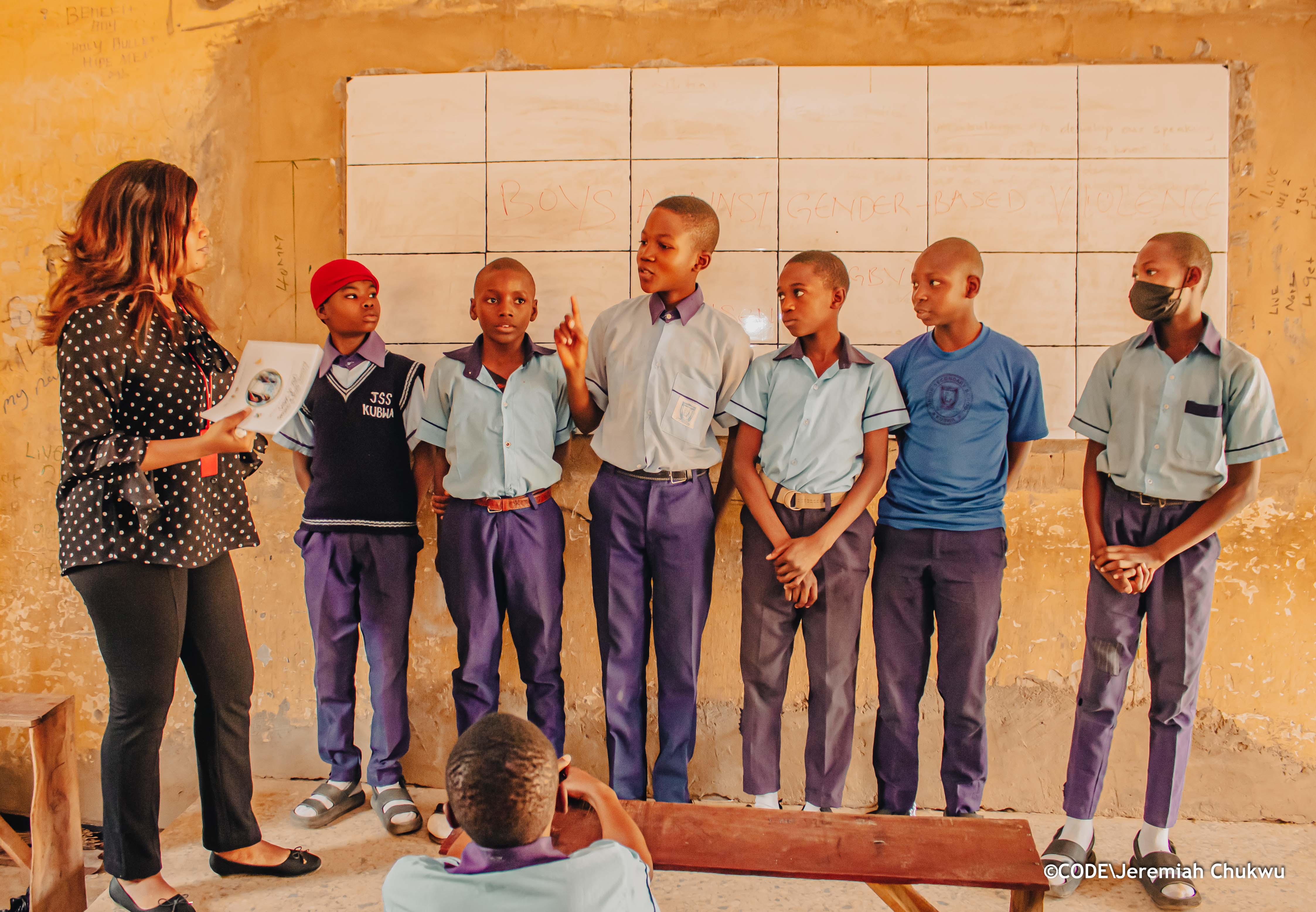
Abuse is Abuse Regardless of Gender.
‘I am a boy, I can’t be abused.’
These were the words of a roughly fourteen (14) year old boy in JSS3.
Project SABI utilizes a fundamental approach to curbing gender-based violence in Nigeria. Instead of hacking at the leaves, the project seeks to dig at the root causes to engage men and boys at the grassroots level.
There are quite a few dimensions to the project to engage men, boys and even women. However, the Boys Against Gender-Based Violence (BAGBV) Club is one initiative that has stuck with me. We have been able to set up the club across the project's focal states.
In the Federal Capital Territory (FCT), we engaged over 300 boys in Junior Secondary Schools. We aim to educate and mentor these boys who will in turn become gender advocates in their schools and communities.

I got the opportunity to engage with the boys on several occasions and might I say that I underestimated their abilities. I heard these boys give me proper descriptions of various concepts related to gender-based violence. On certain occasions, they would back up their definitions with proper descriptions of what they have seen, heard or even been a part of.
While I was excited to hear what these bright boys had to say, I was looking forward to hearing from those who didn’t have an understanding of the concept in general. In every classroom, I walked into, I was on the lookout for the weak links- those who didn’t agree they could be abused just like girls. I knew they didn’t all agree that they could be abused, I was sure they all didn’t have the same ideologies around GBV so I wanted to initiate the process that could lead to behavioural change at least.
For every group I spoke to, I could see the uneasiness among some of the boys. I tried to get their opinions but it seemed almost impossible. Perhaps, they only just met me and didn’t think speaking to me was safe or maybe they just weren’t interested. Whatever it was, I had to find a way around it.
Finally, I met one bold young boy. Nothing could have prepared me for the moment. He was clear, he didn’t stutter. He didn’t believe he could be abused because he is a boy. In his understanding, his gender shielded him from every form of abuse or violence known to man. First, I was happy to hear his perspective, I was eager to see the world from his perspective so I could easily walk him through the process of letting go of culturally inherited biases.
“If I walked into this room and hit you in the face, have I abused you?”
“Yes,” I admired his courage and it was glaring.
“So are you a boy or a girl?”
“A boy,” his countenance changed, I knew his mindset didn’t just change, it is a process but I was so sure the conversation initiated something.

He is one out of millions of boys with a warped sense of understanding of gender. (Women aren’t excluded either) Why he believed being a boy exempts him from abuse can be tied to several factors. His initial refusal to believe he could be abused isn’t a stand-alone idea. It stems from several experiences and beliefs he had lived with. He could have had the orientation that boys are stronger, superior and untouchable whether physically or emotionally as opposed to girls who are ‘weaker’.
A recent study by the University of West London has shown that some men and boys are ridiculed or blamed as the cause of the abuse they go through. These detrimental stereotypes also have negative impacts on the help-seeking behaviour of men and boys who have been abused.
One boy at a time! This is the essence of my 18 months of involvement in training boys who would grow up to become wholesome men who understand their roles in fostering and sustaining an equal and safe society for everyone, especially women and girls.
Here is a toolkit developed during the time of this project that can be used to check your misogyny level in less than 3 minutes!

Comments
No Comment available!